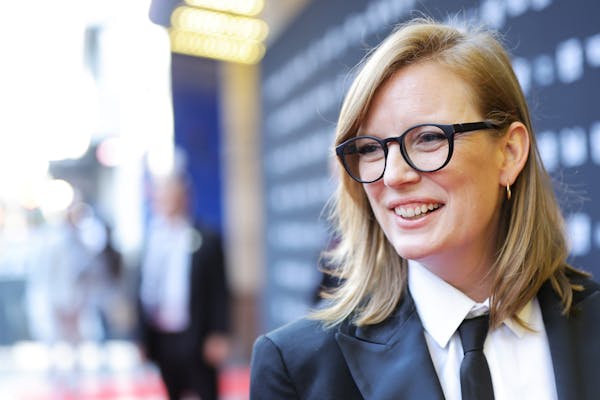There is a lot of injustice in the world, "Women Talking" admits, but there are small, hopeful things we can do to make it a better place.
Based on Miriam Toews' electrifying novel, my favorite movie of 2022 (which played at the Twin Cities Film Festival) is set in the hayloft of a barn. A bunch of women — who recently learned the men in their patriarchal community drugged and assaulted them while they slept — are deciding between three possibilities: Do nothing, stay and fight or leave (a chart represents their options with pictograms because their religion forbids women to read or write, lest they dare to interpret the Bible).
"Women Talking" is a microcosm — a very small one, since we never see the women leave their patch of land — but it stands for larger problems, including injustice inflicted on women by men. It's tough stuff and even though the brutality is not shown, it's not easy to hear what has been done to the women and their female children. But with plentiful references to the lives of butterflies and with a trans boy who is trying to do what's right, "Women Talking" is metaphorically and literally about the possibility of transforming despair into love.
Sarah Polley, who wrote and directed, guides the movie with a touch as light as those butterflies, with playful humor and beautiful images hinting at the world the women could be working toward. There's a "Twelve Angry Men" vibe to the story, set over two days in which the women try to bring their disparate views into agreement.
Some women, especially a bitter young mother played by "The Lost Daughter" Oscar nominee Jessie Buckley, are reluctant to consider leaving. Others, led by a passionate mom played by Claire Foy, can't wait to get out, possibly with some revenge on the way. A woman who is pregnant as a result of her rape, played by Rooney Mara, is unsure.
One thing that seemed in danger of not working as well cinematically as it did in the book is the idea that the women, although denied the written word, are — as the title suggests — great talkers. There's a precision in the way the gifted ensemble speaks the potent language that underscores the importance of their decision (one woman insists, "Leaving and fleeing are different words, with different meanings. They both say something about us.").
As they talk about forgiveness, strength and survival, the women are imagining a new world in which they can raise their sons to do better. So is Polley's film, which is thoughtful and complicated and which, even when the women make up their minds, isn't sure they've chosen wisely. But they have, at least, made a choice.
At the end of "Talking," in case they do leave, the women are shown how to hold their arms up to the sky to use the stars to navigate. We see their upraised arms as the women figure out which direction is south but the gesture also strongly resembles something else: the raised-fist symbol for power.
'Women Talking'
**** out of 4 stars
Rated: PG-13 for language and disturbing themes.
Where: In theaters Friday.
Streetscapes

Critics' picks: The 12 best things to do and see in the Twin Cities this week

6 new foods worth trying at a Timberwolves game

The pandemic made writer Kate DiCamillo realize, 'I'm not going to get through this unless I have a fairy tale to write'

